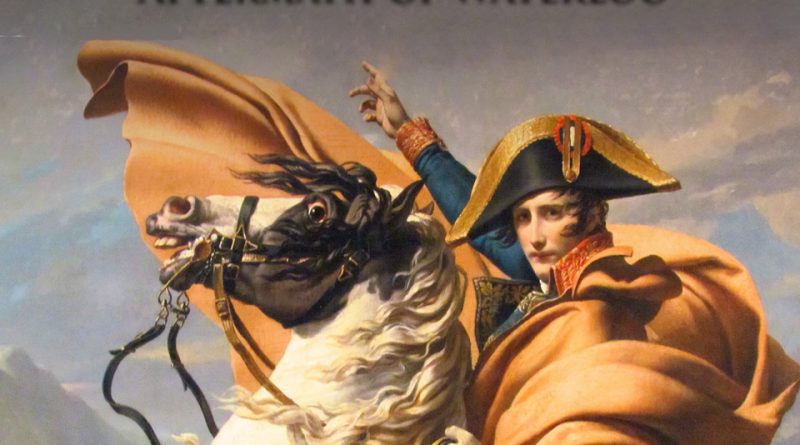
Wellington v Napoleon: Aftermath of Waterloo
In 1814, it seemed that twenty five years of war in Europe was finally coming to an end with the surrender of the Emperor Napoleon and his banishment to the Mediterranean island of Elba.
The European powers began the task of restoring their continent to normality and peace.
However, on 1st March 1815 Napoleon escaped from Elba and landed in France. Nineteen days later he was in Paris and resumed his title as Emperor. His army rallied to him. The soldiers who had been captured during the years of fighting had been released enabling Napoleon to reform his Grande Armée.
The Duke of Wellington and Britain’s European allies had to reassemble their armies and prepare to resume the war to overthrow the Emperor yet again.
Napoleon and Duke of Wellington – two old enemies and the greatest captains of their age, whose armies fought against each other on the Iberian Peninsula during the Peninsular War – meet for their final battle at Waterloo.
This one hour documentary looks at the lives of two titans of the 19th century, Wellington and Napoleon, following their epic encounter at the Battle of Waterloo in June 1815. The victor, the Duke of Wellington, became a national hero in Britain eventually becoming Prime Minister. The defeated Napoleon, however, was exiled to St Helena, a small island in the Atlantic, where he died in 1821.
Wellington and Napoleon were born in the same year, 1769, but they couldn’t have been more different. Napoleon was born in Corsica and was a self-styled man of the people who crowned himself Emperor of France. He introduced many legal and civil reforms including the Code Napoleon, still in use across Europe today.
Napoleon won sixty of his seventy battles; Wellington fought far fewer, but never lost. He was born in Ireland, went to England’s top public school, Eton, was fluent in French and was a supporter of the French Bourbons. Wellington and Napoleon never met and Waterloo was to be the last battle for both.
The deaths of Wellington and Napoleon occurred more than 30 years apart, but even in death their funerals were monumental events reflecting the massive impact of these leaders on the history of their nations.
We visit the battlefield where Waterloo took place and interview experts on the two men including Andrew Roberts, whose book ‘Napoleon the Great’, is a best seller. And we travel to St Helena to see where Napoleon lived his last few years in the isolated and bleak Longwood House and the beautiful location on the island where he was originally buried. In London, we visit Apsley House, the home of the Duke of Wellington in the centre of London, now a museum which contains many mementos from his battles, including Waterloo. We also visit his country house and his tomb in the famous St Pauls Cathedral. In Paris, we visit the many memorials erected to Napoleon and his tomb in Les Invalides, where he was re-buried with great fanfare in 1841.
Credits
Presenters
IAN CROSS
ZAY HARDING
*
with thanks to
APSLEY HOUSE
STRATFIELD SAYE
TOMBE NAPOLEON
LES INVALIDE
ST HELENA TOURISM
THE CONSULATE HOTEL, JAMESTOWN
MARK CAPES
MICHEL DANCOISNE-MARTINEAU
AARON LEGG
HAZEL WIMOT
THE CREW OF THE RMS ST HELENA
ANDREW ROBERTS
MICHAEL BROERS
THE UDKE OF WELLINGTON
EMILIE ROBBE
*
graphics
MARTINA DEO
*
Camera & Sound
NIGEL KINNINGS
GARY ROGERS
*
facilities
GUILTFREE POST
dubbing mixer
CHRIS MORRIS
*
online Editor
GEOFF HOCKNEY
editor
LUKE THOMPSON
*
title music by
IAN RITCHIE
music by
SITTING DUCK
MICHAEL CONN
PAUL MOUNSEY
COLIN WINSTON FLETCHER
*
post production coordinators
JIM WOODALL
production accountant
HELEN KHINE
*
production manager
MEL MOORE
St Helena director
CHRIS LEDGER
written, produced and directed by
IAN CROSS
Produced by Pilot Film and TV Productions for:
RMC DECOUVERTE FRANCE
ãPilot Productions MMXIV
